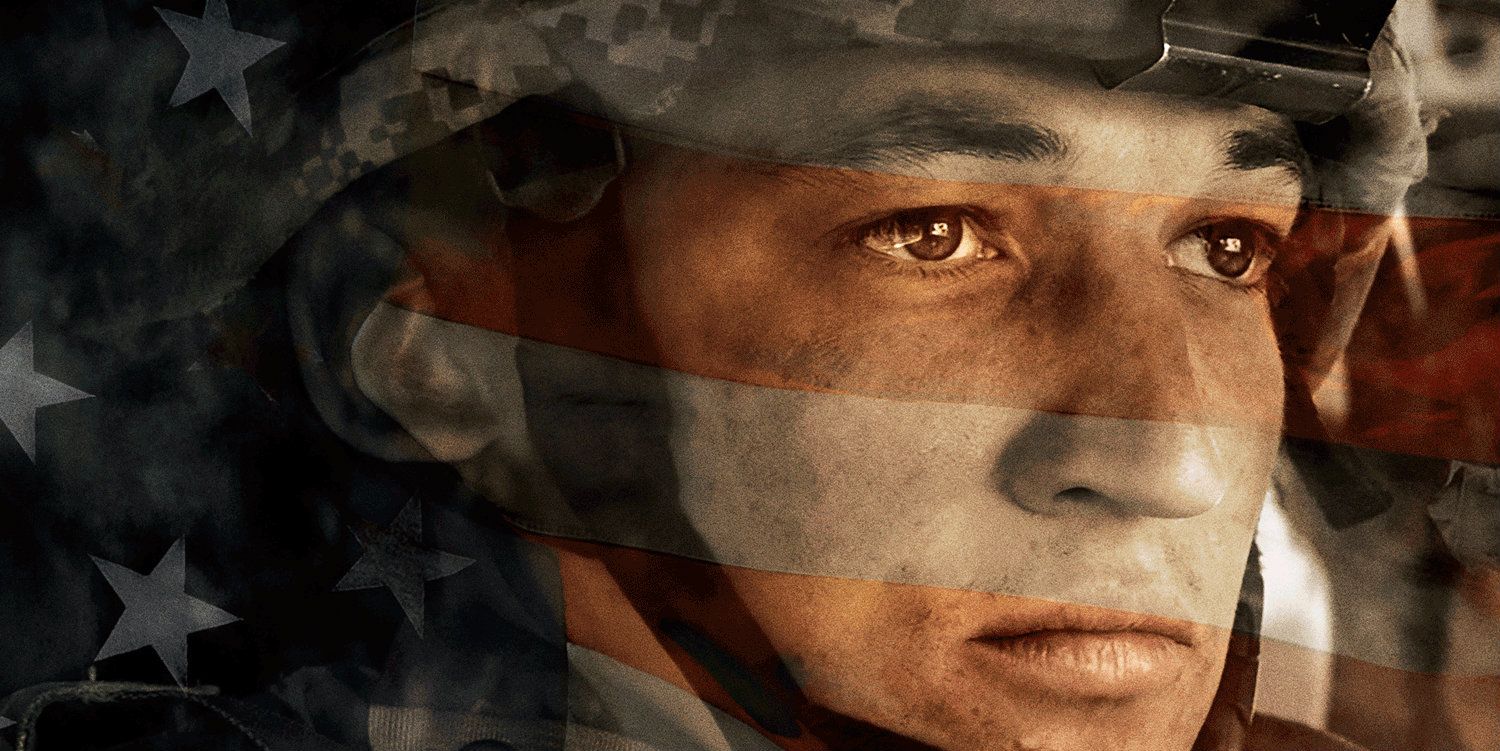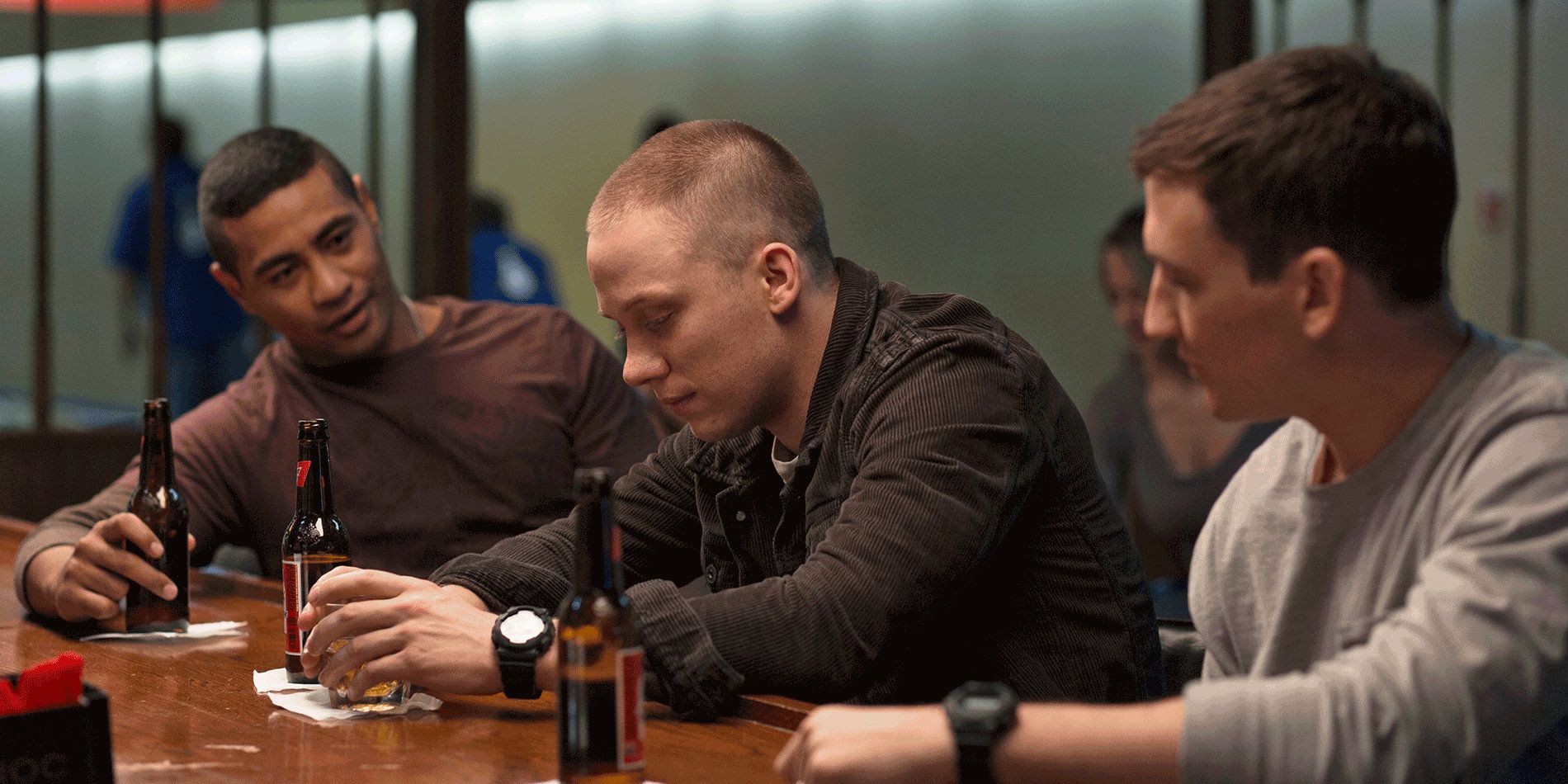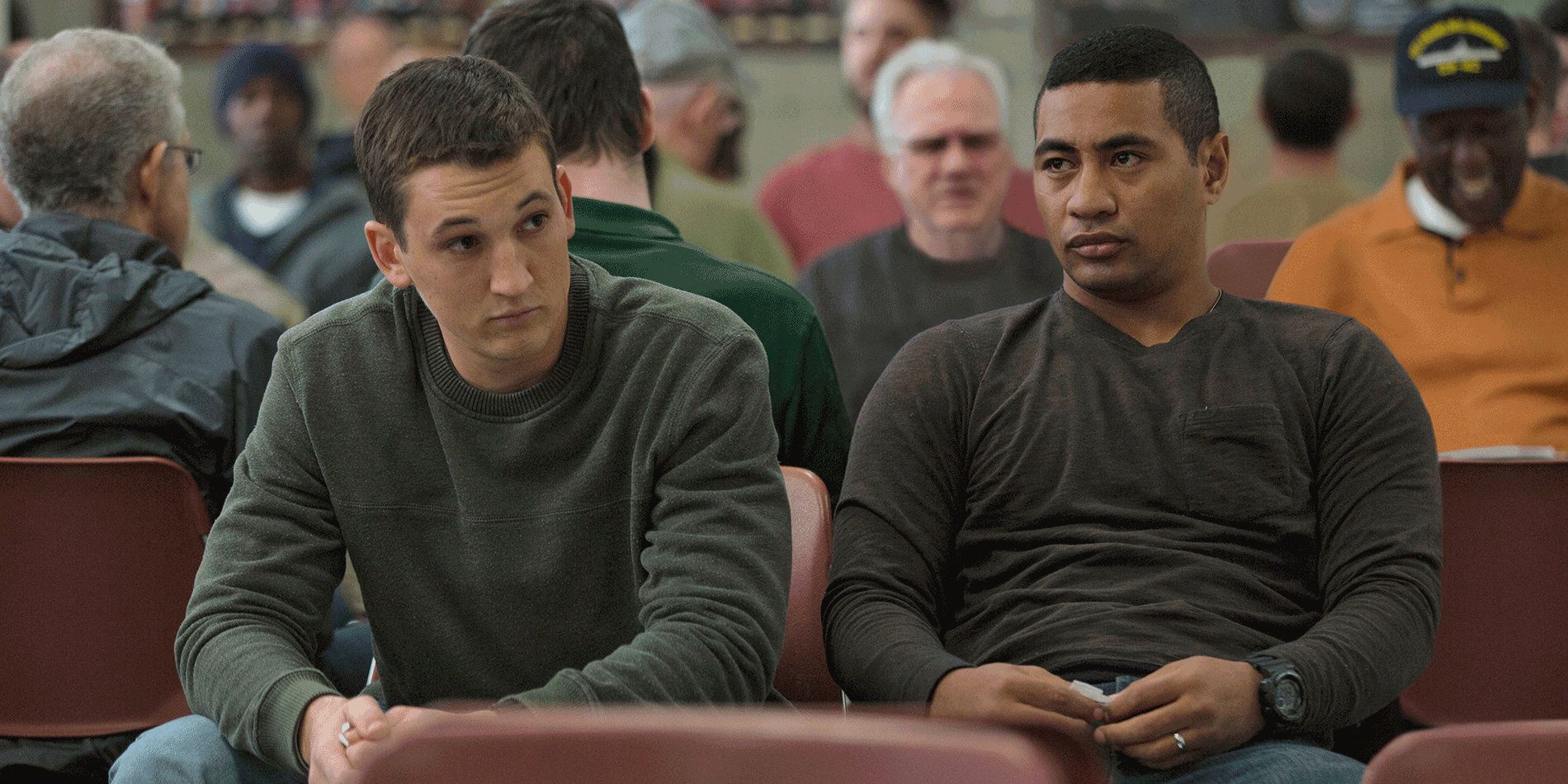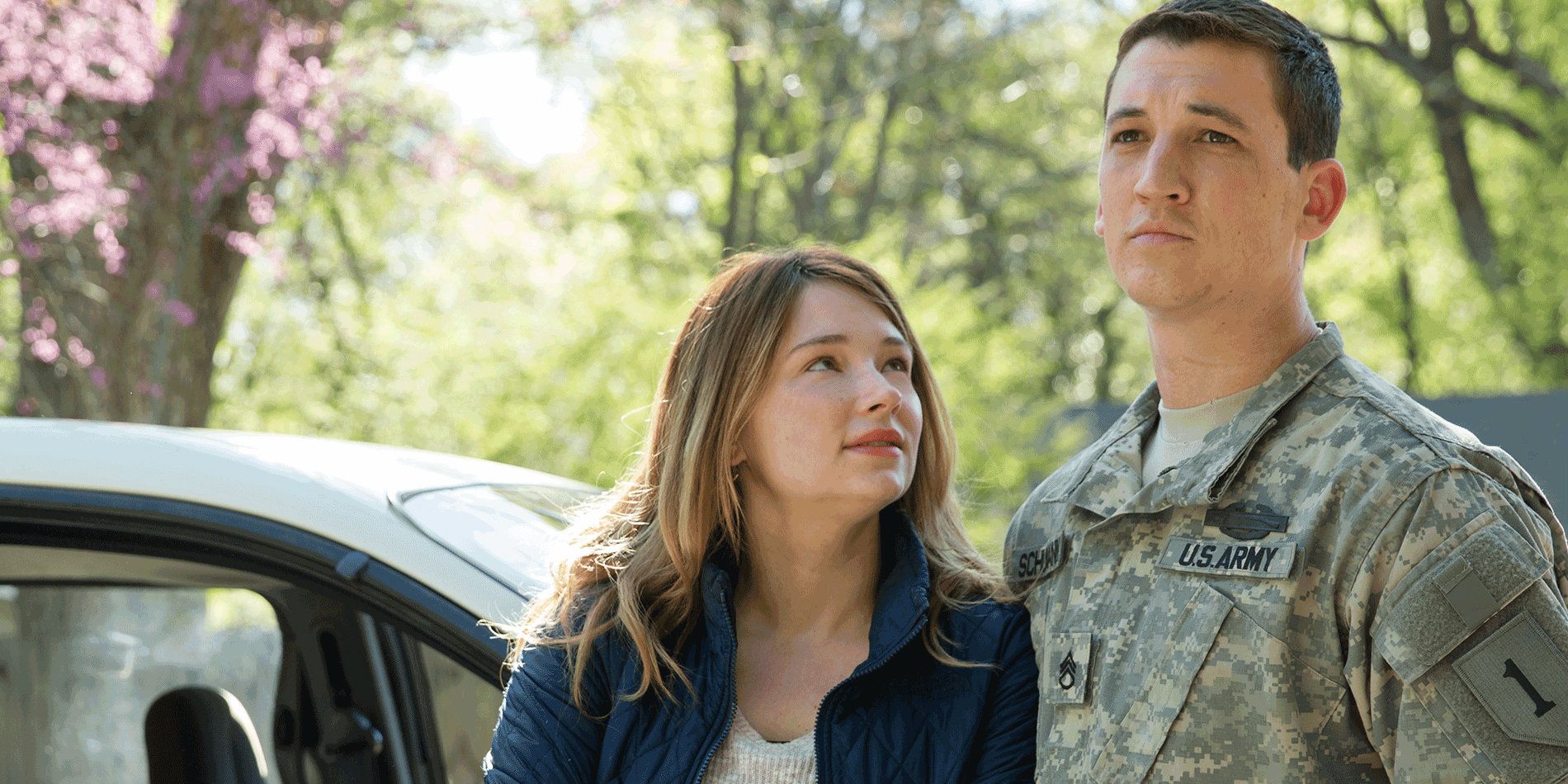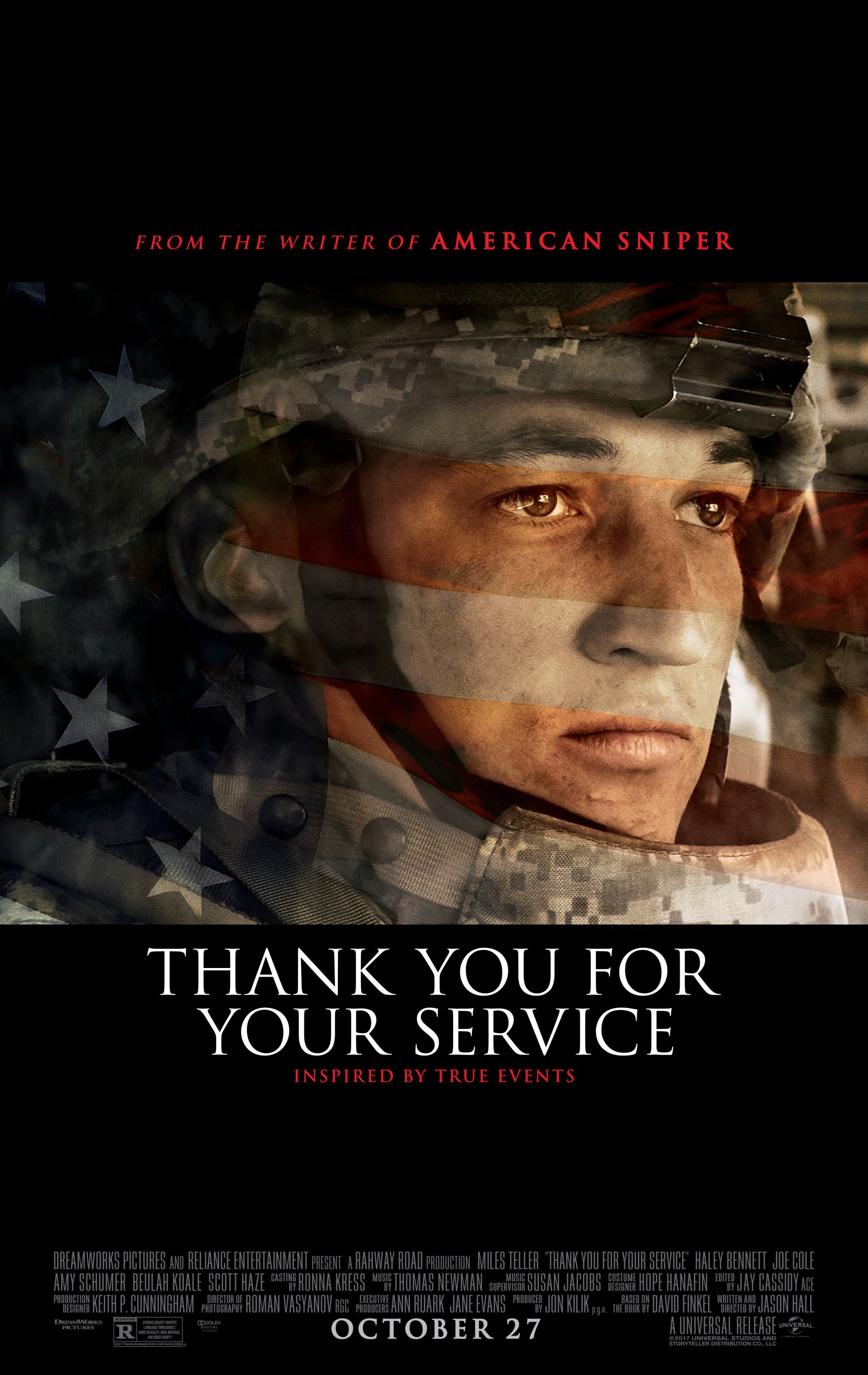Thank You for Your Service isn't a great piece of filmmaking, but good intentions and sincere performances make it a solid drama about life after war.
Adapted from Pulitzer Prize-winner David Finkel's 2013 non-fiction book of the same name, Thank You for Your Service marks the directorial debut for American Sniper screenwriter Jason Hall (drawing here from his own script). In a way, Thank You for Your Service feels like the spiritual sequel to American Sniper, in the sense that the former examines the struggles of soldiers who have completed their own tours of Iraq and must readjust to life as civilians - forever traumatized by their wartime experiences. Thank You for Your Service isn't a great piece of filmmaking, but good intentions and sincere performances make it a solid drama about life after war.
Following the end of his third and final tour of Iraq in the late 2000s, U.S. Sergeant Adam Schumann (Miles Teller) returns home with two of his brothers in arms - Tausolo Aieti (Beulah Koale) and Will Waller (Joe Cole) - in the hope that all three of them will be able to move on to the next stage of their lives. All three veterans soon come to realize that life after the war isn't what they expected and find themselves inflicted with different forms of post traumatic stress from their experiences - with little support offered by the military to help them transition into fulfilling lives with their families and far away from the battlefield.
When tragedy strikes close to home, Adam is sent into a tailspin; no longer able to hide the truth about his emotional struggles from his wife Saskia (Haley Bennett), much less himself or his fellow veterans. Eventually, Adam finds himself faced with a hard truth: if he wants to lead a healthy and mostly happy life from here, he must make peace with what happened to him over in Iraq. That means confronting his lingering guilt about an incident that forever changed the lives of those that he fought alongside, and left him with a broken soul.
More of a character piece than a story-driven one, Thank You for Your Service effectively captures the mundane reality of its characters' post-war lives; painting an unvarnished portrait of the plight of soldiers upon their return home, to a world that has moved on without them and a military support system that is frequently inattentive to their post-combat needs. The film is best during the quieter scenes that focus on its characters' day to day problems (learning to open up emotionally, cutting through military red tape to receive their benefits ), as well as the one on one exchanges between them. Thank You for Your Service ultimately adheres to narrative conventions in order to give its story more structure, making its dramatic plot turns and third act resolution easier to predict along the way. This softens the emotional impact of the film's reveals and more intense moments, but also provides a satisfying (if formulaic) arc for its protagonists and their respective narrative threads.
As far as directorial debuts go, Hall does a solid job with his first time at the helm on Thank You for Your Service. The film is technically serviceable on the whole, as Hall and cinematographer Roman Vasyanov (Suicide Squad) make nice use of drab colors to give its world and imagery more of a grounded and unromanticized feeling. Thank You for Your Service's action-oriented sequences (both in Iraq and stateside) are a little rough in their construction, but the film has more success generating tension through its usage of sound - often enhancing ambient noises (like speeding cars) to reflect the internal turmoil of its protagonists. Hall falls short of establishing a distinct sense of style with his first time at bat here, but allows room for his cast's performances to do more of the talking in this case.
Following on the heels of his turn as a real-life firefighter in Only the Brave last week, Teller delivers another fine performance as a real-life person in Thank You for Your Service. Digging below the surface of his character here, Teller reveals the cracks in Adam Schumann's easygoing exterior, as his emotional baggage piles up. Koale and Cole are equally solid in their respective roles as Tausolo and Will, who find themselves suffering from psychological (and in Tausolo's case, neurological) problems that are only inflamed by their circumstances, upon returning to life as civilians. The relationship between Adam and Tausolo in particular serves as the emotional backbone for much of the drama that ensues over the course of the film. Both their dynamic and Thank You for Your Service at large benefit from the screen chemistry between Teller and Koale, in turn.
Bennett gets the meatiest role among the supporting players in Thank You for Your Service and delivers a decent performance herself, though her character is only given a little more depth that the average supportive/concerned wife type. Unfortunately, Whale Rider and Game of Thrones alum Keisha Castle-Hughes doesn't get enough screen time to make much of an impression as Tausolo's own significant other, Alea. By comparison, Scott Haze (Teller's Only the Brave costar) is given more to do during his own brief screen time as Michael Emory, another member of Adam's Iraq unit. The same goes for Amy Schumer, who handles the dramatic change of pace afforded by her character - the widow Amanda Doster, whose husband worked with Adam - with relative ease, but has what some filmgoers may find to be a curiously small role to play.
All things considered, Thank You for Your Service is a tasteful - if unexceptional - exploration of PTSD in modern soldiers that provides meaningful social commentary on how the U.S. military and the country as a whole treats them, upon their return from the battlefield. While it relies too heavily on certain narrative tropes and is only passable in terms of craftsmanship, the respectful messages and performances at its core make the film a worthwhile endeavor all the same. Thank You for Your Service's depressing subject matter may hurt more than help when it comes to finding an audience for the film; nor does it necessarily demand to be seen in theaters. All the same, it's an appealing options for those filmgoers who would like to see a movie about the U.S. military that foregoes jingoism, in order to explore the idea of patriotism in a more substantial light.
TRAILER
Thank You for Your Service is now playing in U.S. theaters nationwide. It is 108 minutes long and is Rated R for strong violent content, language throughout, some sexuality, drug material and brief nudity.
Let us know what you thought of the film in the comments section!

